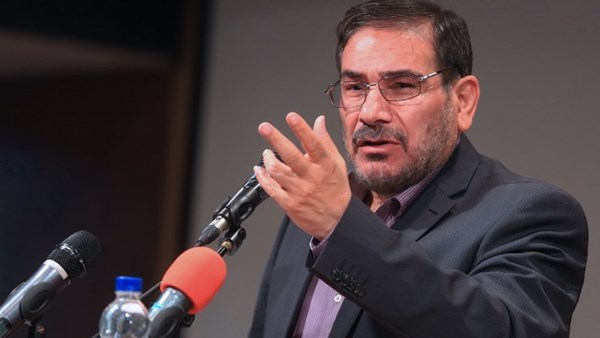Secretary of Iran's Security Council: Iran's cooperation with Russia is of 'strategic importance'
Tehran has decided to give access to its military infrastructure to Russia in their fight against terrorist groups in Syria as reported on Tuesday, August 16, by world media, referring to the statement of the Secretary of the Supreme National Security Council of Iran, Ali Shamkhani. In an interview with the Iranian IRNA news agency, Shamkhani also emphasized that Iran's cooperation with Russia is of strategic importance.
Earlier, news agencies reported that Russian Tu-22M3 bombers, which are capable of carrying nuclear weapons, attacked targets in Syria, flying directly from the Hamedan Airbase in Iran.
This has been the first such case since the beginning of the Russian Aerospace Defense Forces aviation group’s operation in Syria, which began in September last year. Thus far, only the Hmeimim airbase in Syria had been used.
The Russian Ministry of Defense stated that Islamic State militants and members of the armed group Al-Nusra Front in the provinces of Aleppo, Idlib and Deir ez-Zor were the targets of the attacks. Cover for the bombers was carried out by fighters based at the Russian Air Force Base Hmeimim in Syria.
A member of the Chatham House Russia and Eurasia Program Nikolay Kozhanov, believes that the relocation of long-range Russian bombers to the Iranian airfield is dictated primarily by security reasons.
"According to reports from the region, a large number of MANPADS have appeared in Syria,” he stated in an interview with the Russian broadcast of Voice of America. “The airfield in Hmeimim is not very reliable in this respect."
Nikolay Kozhanov also said this may be a result of a serious "cheapening of strikes." "In principle, if we speak the language of economics, it is all about a significant reduction in the fuel consumption of long-range bombers," he said.
But, as suggested by the expert, the key reason to making such a decision was the intensification in the battles for Aleppo.
"And this is a defining moment for both Russia and Iran,” he explained. “Because for both countries this is a fight for victory in Syria. Meanwhile, Assad’s army, with the support of Iranian volunteers, obviously cannot cope with the task."
According to Nikolay Kozhanov, the decision itself is not that historical, but really quite significant. "Russian troops have not been present in Iran since 1946,” he reminded. “Everything indicates that the Iranians are in a really tight situation in Syria. They do not see any other way but to let Russia use their sites, in order to change the direction of the war in Syria."
According to the expert, Tehran’s decision is contrary to Iranian pride and mentality. "During the last 30-35 years, Iranians have firmly declared that they would cope with their problems on their own and would not require any foreign assistance. That means that the situation in Syria is, to put it mildly, not very good. The situation has forced them to change their principles," he concluded.
“However, due to this, we should be very careful in talking about the creation of a Russian-Iranian military alliance, as this is more about enhancing the coordination of actions in the framework of the current situation in Syria,” he explained. “The global goals of the countries are still different,” emphasized the representative of the Chatham House Russia and Eurasia Program.
In turn, a senior researcher at the Institute of Oriental Studies of the Russian Academy of Sciences, Professor Vladimir Sazhin, in his comments to the Voice of America noted that Russian-Iranian relations are formally at a good level.
"We have a common goal in Syria to support the Assad regime, although the sides here show very different approaches,” he said. “In short, I think such bilateral relations are normal, though I would never call them allied or strategic."
“We just draw more closely together on some issues, and less on others, and that's all,” concluded Vladimir Sazhin. He thinks that the relations between Russia and Iran will not be able to grow to the strategic level, because there are "too many attendant circumstances."
